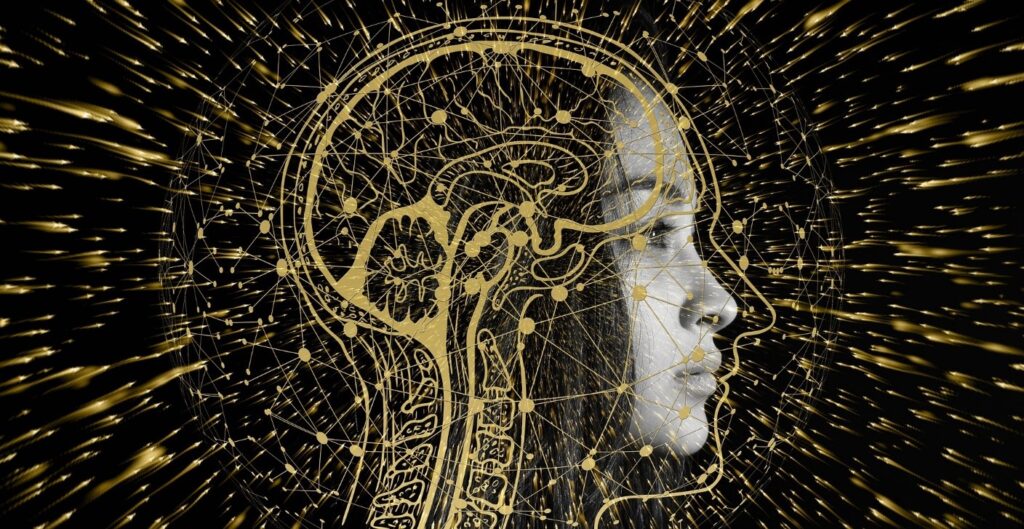Just like the invention of steam power in 1780, electricity in 1870, computers in 1960, AI changes our world today. Although it has been a while since AI reached our doorstep, the potential it has to offer is huge.
So how artificial intelligence is changing business today?
AI In Business: Why It Works?
AI is good at processing large amounts of data. For businesses, it opens new horizons for quick and well-considered decision-making, risk management, forecasting, logistics optimization, marketing personalization, etc.
The ability of AI to process natural language allows this technology to be successfully applied in “around-customer” services. Chatbots and automated call centers improve the user experience and reduce the cost of companies communicating with customers.
Computer vision systems are capable of identifying objects and people without human intervention.
Autopilot in Tesla could be a great example here. However, such systems are also good at recognizing text, estimating human body motion patterns based on a skeletal model, and finding manufacturing defects or anomalies in human behavior from video footage.
Thanks to this, they ensure safety indoors and on the streets, monitor the quality of production processes, do sorting, and control the movement of autopilot cars.
Considering different business models, AI can increase revenue and reduce costs in various ways. Besides, AI opens up the prospect of launching fundamentally new business models that did not exist before or were previously impossible without AI.
AI Cases and Areas of Application
AI shows significant progress in image processing. In 2010 inaccuracy of image recognition inaccuracy was over 30% in 2010, however, it dropped to 4% by 2020.
Today it benefits a large number of businesses and areas: from robotics and medicine to marketing and entertainment.
Drone and robot manufacturers are automating security services with advanced surveillance systems.
In the medical sector, AI is used to scan medical images to detect cancer.
In recent years, with the introduction of the new deep learning approach, the capabilities of AI are expanding particularly rapidly. Visual images are still not perfectly-recognized, but we humans do not always immediately recognize a puppy’s face.
When it comes to information processing and decision-making, AI is already beating the best poker, chess, and Dota 2 players. Cybersecurity companies use AI to detect malware, while PayPal is using it to prevent financial fraud.
AI also manages the processing of requests to insurance companies and makes recommendations to improve customer service.
Dozens of companies use machine learning to plan exchange operations, and banks use it to make credit decisions.
More than 75% of all decisions in the bank sector are made with the help of AI recommendations. They determine the solvency of a client, assess the likelihood of default or fraud. Decision-making is almost entirely automated.
AI independently compares customer data and the requested credit amount with scoring models and generates an individual loan offer in seconds.
It also monitors the financial behavior and spending habits of the client and decides whether the credit limit can be increased for a particular client.
Traditionally, banks (and other companies) use AI in chatbots that help employees serve customers.
Bots not only answer the customer’s queries but also understand exactly what the customer wants to ask.
Also, AI technologies speed up loan disbursements, predict the right amount of cash in the branches and collect feedback from customers. With the help of AI implementation, banks around the world develop computer vision and biometrics, speech analytics and speech synthesis, work with natural language and text.
AI In Technical Domain and Retail
The potential of AI in the production industries is also booming. In the oil and gas, chemicals, metallurgy industries AI can be used to predict product quality, optimize production parameters and raw material consumption. Even a small improvement of a single process by 3-5% can result in multi-million dollar savings.
As for the AI in retail, it predicts demand for products, improves logistics and internal in-store processes, and creates personalized offers for customers.
AI takes into account the frequency and amount of purchases, lifestyle of the customer, acceptable price levels, and favorite product categories. Such knowledge increases the effectiveness of targeted marketing by 5% and reduces communication costs by 40%.
The system has already generated personalized offers for loyalty program participants, and today more than 70% of targeted promotions are created with the help of AI.
For example, Amazon uses machine learning to personalize offers, offer recommendations, which brought them 35% of the revenue.
Wrapping Up
AI is not even the future, it’s our present. We receive personalized offers from banks and stores, see information in search engines based on our preferences, can consult an online doctor, and are waiting for autopilot cabs to appear on the streets.
Artificial intelligence today helps many companies to increase productivity, sales performance, monitor the operation of equipment, and debug many other processes.
Author’s BIO:Louis Sawyer is a professional writer, editor and a web design expert. She loves writing about technology trends, web development, mobile games and business issues. Also, Louis works as a proofreader at Computools. Follow Louis on Twitter.
